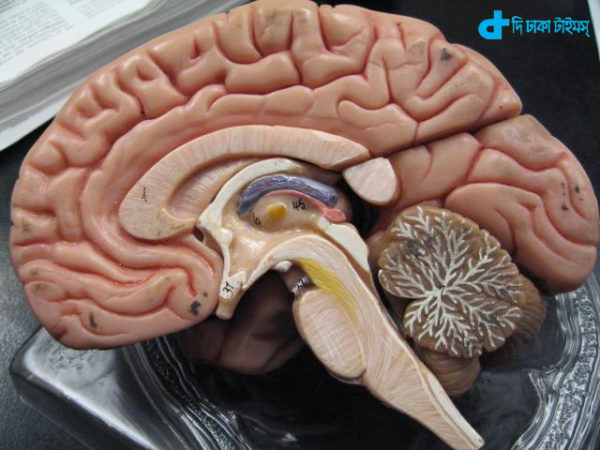The Dhaka Times Desk Hearing such words one might think how can a selfish person be altruistic? But thanks to science, it is going to happen this time. Selfish people will become benevolent overnight!

Can someone close to you seem too selfish? He thinks only of himself, never thinking of others. You might think that if a drug could be administered, your selfish self might become altruistic. But as you want, now you can change your selfish loved ones! The results of recent research in neuro-science are going to do such an impossible thing.
According to researchers, there are separate areas or 'regions' in our brain to control the goals or objectives (motives) of the actions we do. And artificially we can report on those areas. If we want, we can work with those areas as we wish. Which really means, no one can be 'selfish' or 'selfless benevolent' throughout life.
What do you know? My-your behavior or nature can be completely changed artificially if you want? So that an extremely 'selfish' person can become a great philanthropist for others! And the opposite is possible!
The paper titled 'The Brain's Functional Network Architecture Reveals Human Motives' was published in a recent issue of the science journal 'Science'. The research team is led by neuroscientists and psychologists Grit Hein, Ernst Fehr and Yosuke Morishima of the University of Zurich.
Urmimala Mishra, Associate Professor of the Department of Neuro-Sciences at Rebound University Nijmegen in the Netherlands, said about the novelty of the research, 'The brain areas that control the 'motives' of all the activities we do throughout the day, month, year or life, how they do it. It is known that this is the first time. Remember, most of our actions are done unconsciously. We ourselves do not really know, or understand why we are doing the work or why we decided to do it. Although children do it more. That tendency diminishes somewhat with age. That tendency increases again in old age. With Dynamic Causal Modeling (DCM) we have seen different patterns of activity in different brain regions.'
We are able to find the areas of control that are the 'motives' behind our daily activities. As we have seen, our inclinations towards 'selfishness' or 'selfless altruism' are indeed quite relative. Just as no one is selfish all his life, so no one is altruistic all his life. It is seen that they change from time to time, without realizing it, that change can be made faster. Not only that, but that change can be made more frequent.' And so if someone calls you 'extremely selfish' then protest now! On the other hand, the praises of the 'selfless' people around me and you are being sung, whether it is completely correct or not, think about it now!
Some 'senses' work, explained co-researcher Meghna Srivastava, a neuroscientist at the University of Zurich. We act for others either out of sensitivity or 'empathy', or out of 'reciprocity'. 'Reciprocity' is a very strange thing. It is actually of two types. I will do you a favor but what will I get in return? This is a form of 'reciprocity' in that we sometimes do favors to others. There is another type. And that is, 'He did me a great favor during that terrible danger by giving me a lot of money in one word. I need to make a recommendation for his son's job today. If you do the benefit thinking like this, it also becomes 'reciprocity'.


